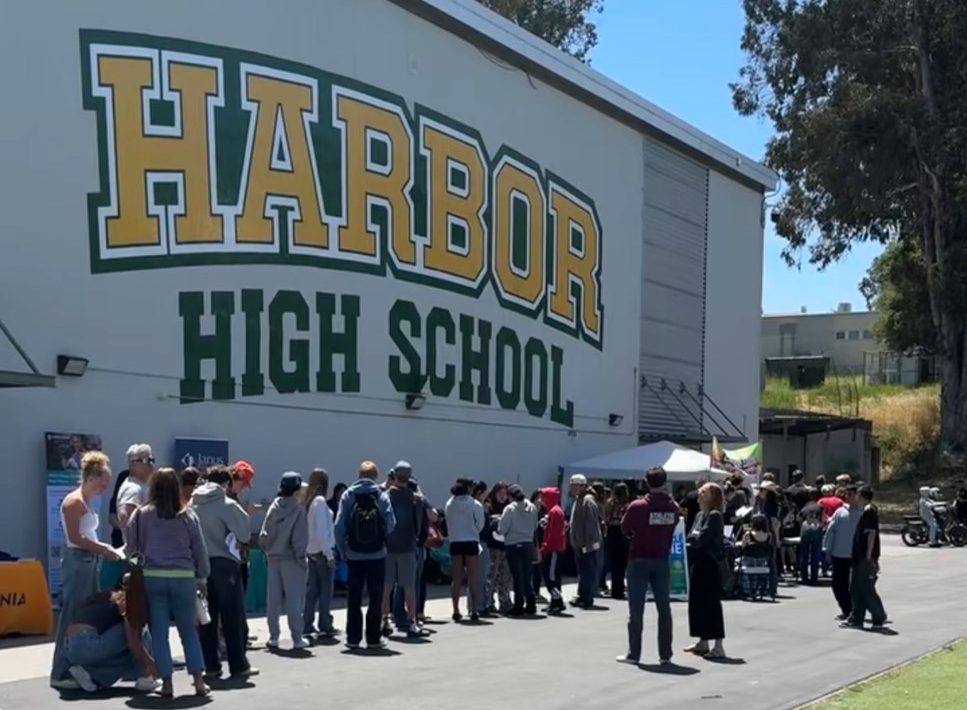When Franchesca Lising walked into a free Sutter Health youth sports clinic in Santa Cruz, she was simply hoping to get cleared for cheerleading. What she walked out with was something far more important — a discovery that could have saved her life.
“I had this EKG, so I could get cleared, and then I didn’t get cleared,” Franchesca recalled. “They told me I needed to go see a cardiologist. I went to Stanford, and that’s when I found out I had an arrhythmia.”

Franchesca Lising poses for her cheerleading photo.
Franchesca, a high school student and multi-sport athlete, had been unknowingly living with a potentially dangerous heart condition — one that wouldn’t have been detected during a routine physical. Thanks to the quick work of frontline volunteers at the Sutter Health clinic, including Dr. Neil Sawhney, she was referred for further testing and began a treatment plan that now includes regular follow-ups every six months.
“The reason we do cardiac screenings is that there are a few diagnoses that can be life-threatening for kids and don’t get picked up during standard physicals,” explained Dr. Sawhney. “Franchesca had an arrhythmia that you’d only really catch on an EKG. It’s not super rare, but it can cause sudden death, fainting, or other serious problems. The good news is, it’s treatable — and we caught it early.”
Sutter Health’s youth sports clinics, which are offered free of charge, are powered by the dedication of volunteer doctors, nurses, medical assistants, and technicians. Cardiac screening is also volunteer based with PAMF cardiologist reading the EKGs and (if necessary) ECHOs while PAMF cardiac techs run the tests. They are all joined in the effort by the school district athletic trainers (and PAMF physical therapists) running the ortho station and nurses running vitals station, making the PPE a joint effort between the PAMF medical providers and school district providers.
This year, additional partnerships with Dignity Health, Salúd Para La Gente, Santa Cruz Community Health, and the Santa Cruz County Office of Education will add even more value. Outside the school’s gym, students passed through a health fair with booths on everything from fentanyl education and Narcan distribution to nutritional and mental health support.
“We’ve been doing this for years now,” said Dr. Sawhney. “Every year, we find a few kids who really benefit. Of course, I’d love to go through a whole day and find nothing wrong, but when we do find something that can be fixed before it causes a problem — that’s gratifying. That’s why we do it.”
While she was ultimately cleared to continue cheerleading for most of the season, the discovery has been life-changing and is learning how to better listen to her body.
“Before, I wasn’t really paying attention to what my body was telling me,” she said. “Now I notice things — like when it’s hot and I feel more tired, or when I need to take a break. I’ve also been eating healthier, just trying to be careful.”
She’s also learned to value the everyday things more — time with friends, playing with her dog, baking, and school — all seen through a new lens of awareness and gratitude.
“I really did take it for granted,” Franchesca said. “Now I think I care about life more. I’m more aware that not everyone gets to wake up every day and feel okay. I just feel lucky.”
Her advice for other teens? Don’t ignore the opportunity to get screened.
“If I didn’t come here, I wouldn’t have had an EKG — I wouldn’t have had a reason to. But because I did, it helped me figure out what was going on.”
Sutter Health and its network of dedicated volunteers continue to offer these free clinics in the hopes of helping more kids like Franchesca — not just to play sports, but to thrive. As Dr. Sawhney puts it, “This is all about community. It’s about making sure our kids are healthy — even when they don’t know anything is wrong.”
And for Franchesca, that one simple screening didn’t just help her cheer — it may have saved her life.





